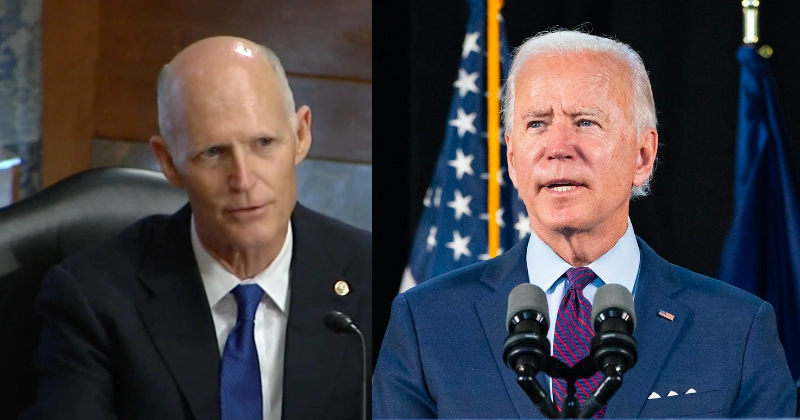Florida U.S. Sen. Rick Scott joined fellow Republican Sen. Ted Cruz, Sen. Bill Hagerty (Tenn), Sen. Ted Budd (NC) and Sen. Mike Braun (Ind), to halt efforts by the Biden administration to issue a central bank digital currency (CBDC).
A CBDC is government-controlled programmable money that, if not designed to emulate cash, could give the federal government not only significant transaction-level data down to the individual user, but also the ability to program the CBDC to choke out politically unpopular activity.
The CBDC Anti-Surveillance State Act would prohibit the Federal Reserve from issuing a CBDC directly to anyone, ensuring the Federal Reserve can’t mobilize itself into a retail bank. It would also bar the Federal Reserve from issuing a CBDC indirectly to individuals through financial institutions or other third parties, as well as prevent the Federal Reserve from using a CBDC as a tool to implement monetary policy and control the economy. Finally, the bill would require authorizing legislation from Congress for the issuance of any CBDC.
“Big government has no business spying on Americans to control their personal finances and track their transactions,” Scott said. “It is a massive overreach and a non-starter for me. That is why I am proud to join Senator Ted Cruz to introduce the CBDC Anti-Surveillance State Act to stand up against this invasive practice and keep Big Brother out of your bank account.”
The legislation is endorsed by Heritage Action for America (HAFA), the Blockchain Association, the American Bankers Association (ABA), the Independent Community Bankers Association (ICBA), and Club for Growth (CFG).
“The Biden administration salivates at the thought of infringing on our freedom and intruding on the privacy of citizens to surveil their personal spending habits, which is why Congress must clarify that the Federal Reserve has no authority to implement a CBDC,” Cruz said. “I’m proud to lead the fight in the Senate to restrict the Federal Reserve’s exploration of and attempt to introduce a CBDC to the American economy.”





















